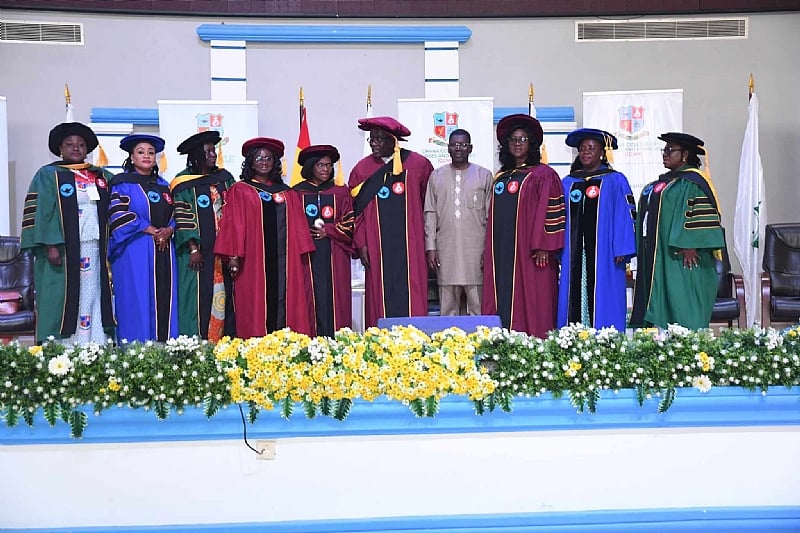The government of Ghana is actively promoting specialized training and advanced degrees for nurses and midwives, as articulated by Dr. Hafiz Adams, the Acting Director of Technical Coordination at the Ministry of Health. During his address at the 9th annual general meeting and 5th seminar of the Ghana College of Nurses and Midwives in Accra, Dr. Hafiz emphasized that the government is ready to continue sponsoring initiatives that empower nurses and midwives, enhancing their skills and knowledge. This commitment is part of a broader strategy aimed at improving the healthcare system in Ghana, as skilled healthcare professionals are crucial for delivering high-quality medical services. By pursuing specialized training, nurses and midwives can thrive in their respective fields and significantly contribute to enhancing healthcare delivery in the country.
Dr. Hafiz underscored that specialization in nursing and midwifery is increasingly vital rather than optional. He cited the establishment of the Ghana College of Nurses and Midwives in 2011 under ACT 833, which was designed to cater to the training of specialist nurses and midwives. This initiative reflects the recognition of the need for enhanced healthcare delivery through targeted training that fosters expert-level knowledge in specific medical fields. By enabling nurses and midwives to develop expertise in areas relevant to population health needs, the government aims to ensure that practitioners can provide more effective care to diverse groups within society, thus improving overall patient outcomes and experiences.
In her remarks, Prof. Veronica M. Dzomeku, Dean of the School of Nursing and Midwifery at Kwame Nkrumah University of Science and Technology (KNUST), echoed this sentiment by discussing the intricate nature of modern patient care. She acknowledged that current healthcare demands extensive knowledge and skills that surpass the scope of basic nursing training. Prof. Dzomeku pointed out that as healthcare challenges evolve, including the rise of chronic conditions such as diabetes, heart disease, and cancer, there is an urgent need for specialized nurses who can adeptly handle complex care plans. Such expertise enables these practitioners to lead educational initiatives for patients and take on roles in clinical research, thereby bolstering the healthcare system’s capacity to address intricate medical issues.
The discussion on specialization highlighted the indispensable roles that nurses hold in various healthcare sectors such as oncology, cardiology, pediatrics, and critical care. Prof. Dzomeku noted that specialized nurses not only provide advanced care but also lead the integration of innovative technologies into patient management, promoting the advancement of best practices within the healthcare community. Their specialized knowledge places them in prime positions to manage challenging patient cases effectively and ensures a higher standard of care for patients, ultimately leading to improved health outcomes across the board.
Moreover, the emphasis on research and innovation was recognized as pivotal for advancing nursing and midwifery practices. Dr. Hafiz urged specialist nurses and midwives to engage in research-driven activities that underline evidence-based practices, positioning themselves as leaders in healthcare innovation. By focusing on empirical research, these healthcare professionals can develop a deeper understanding of patient needs and healthcare dynamics, thereby contributing to a robust body of knowledge that can transform patient care paradigms and result in favorable health outcomes.
In summary, the government’s commitment to empowering nurses and midwives through specialized training is a proactive approach aimed at enhancing the quality of healthcare in Ghana. The interplay of government support, academic excellence, and a commitment to research and innovation stands to elevate the standards of nursing and midwifery. As these professionals embrace specialization, they not only advance their careers but also play a crucial role in addressing the evolving healthcare needs of the population, leading to transformative changes in patient care practices and improved overall health outcomes.














